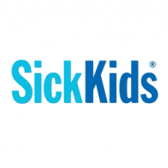Development of an Electronic Resource Manual for the IR (Interventional Radiology) Department

Summary
The Hospital for Sick Children is also called SickKids. It is a pediatric hospital. SickKids is considered one of the top-ranking pediatric hospitals in the world. The Interventional Radiology (IR) department at SickKids is one of the most advanced. It specializes in using image guided therapy to perform minimally invasive procedures. Using ultrasound, x-ray, fluoroscopy, and MRI to treat disorders. IR at SickKids treats over 6,000 patients a year. There are many different procedures performed in IR. Currently, the IR department does not have a resource manual for the complex procedures they perform.
The fellowship’s overall goal is to develop an electronic resource manual procedure template and develop the G-Tube for the initial procedure for resource manual.
The first objective of the fellowship was to increase knowledge about adult learning principles, knowledge application and knowledge translation. Applying the adult leaning principles to the development and implementation of an electronic procedure resource template. Subsequently, developing and implementing the G-Tube resource through an education plan created from taking the adult learning/teaching courses. The resource manual is inclusive of all IR staff, Staff Interventional Radiologist Physicians (IR), IR Fellows, Medial Radiation Technologists (MRTs), and Registered Nurses (RNs).
The second objective was to understand the RNAO Best Practice Guidelines and the Knowledge-to-action framework. To understand its role in developing and implementing an electronic resource manual and its application to the G-Tube procedure resource. The knowledge was translated to staff by using the knowledge-to-action framework.
The third objective of the fellowship was to gain a better understanding of QI. This proved to be challenging as all the courses that were offered pre pandemic were no longer available. EQIPs provided an online course that helped me apply and use the PDSA (Plan Do Study Act) (plan, do, act, study) cycle for my project.
The overarching learning goal of this fellowship was to increase my leadership skills and knowledge application to develop and implement an electronic resource manual in IR. Throughout the fellowship I increased my knowledge and skills to gain expertise in learning to identify the problem, critically appraise evidence, conduct environmental scans, needs assessments, develop, implement, and evaluate the electronic resource procedure. I met with stakeholders and adapted their feedback into constructive implementation of information and data collected.
Outcomes
This fellowship's direct outcome is the initial development of an electronic resource procedure manual in Microsoft OneNote. Which includes the standardization of several processes. The development of a resource template and the G-Tube resource procedure for the IR department. The journey to arrive at this destination involved identifying the problem. The next step was creating a stakeholder group of all staff disciplines, some were supportive, and some were unsupportive. Everyone became supportive(facilitators) after they understood the goal of the project. Need assessments, environmental scans, focus groups meetings, and surveys were performed. A QI framework, the PDSA cycle was used to evaluate the resource template and G-tube resource procedure. The knowledge-to-action framework was implemented to translate knowledge from the OneNote to the staff through small group in-services, through an education plan. Observation, room audits, and staff satisfaction surveys were completed to determine the effectiveness of the use of checklists and the efficacy of the procedure resource implementation. IR staff demonstrated how to use the Microsoft OneNote resource manual. They found the checklist to be a valuable tool. It standardized processes of care, streamlined procedures, and improved efficiencies. The resource manual will also assist, support, and guide new staff for orientation. Sustainability was planned early. Leadership is supportive and the project will continue and be overseen by the RNAO Fellow. Continuous evaluation of the process will direct its future development and success.
Overall experience
I am incredibly grateful for this unique opportunity. It fulfilled two goals. One to cultivate personal, professional development goals for myself. Two, to begin the development of an electronic resource manual for the IR Department. This fellowship allowed me to focus on the initial development of the electronic resource manual. It allowed me to learn the processes involved. I was able to network and meet people I would otherwise not have contact with. I was able to showcase the potential of an electronic resource manual. I was able to let the voices of the RNs and the MRTs be heard. I cannot express in words how much this fellowship has enriched my life professionally. I was not very computer literate when I embarked on this project and my skills have become very proficient. My mentoring team has been extremely supportive and helpful. I look forward to sustaining and completing the electronic resource manual.
References
https://2025.sickkids.ca/#strategic-directions
